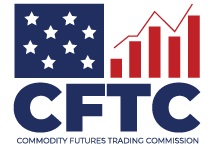CFTC Orders HSBC Bank USA, N.A. to Pay a $45 Million Penalty for Manipulative and Deceptive Trading in Connection with Swaps Related to Bond Issuances, Spoofing, and Supervision and Mobile Device Recordkeeping Failures

Washington, D.C. — The Commodity Futures Trading Commission today issued an order simultaneously filing and settling charges against HSBC Bank USA, N.A. (HSBC), a provisionally registered swap dealer. The order charges HSBC with manipulative and deceptive trading related to swaps with bond issuers, spoofing, and supervision and mobile device recordkeeping failures at various times during approximately an eight-year period.
HSBC is ordered to pay a $45 million civil monetary penalty; to cease and desist from further violations of the Commodity Exchange Act’s (CEA) anti-fraud, anti-manipulation, supervision, and recordkeeping provisions; and to engage in specified remedial undertakings. HSBC has represented that it has already undertaken and continues to undertake extensive remedial measures, as described in the order.
“The Commission has zero tolerance for manipulative, deceptive or spoofing transactions, including by registered swap dealers,” said Director of Enforcement Ian McGinley. “Registrants need to take their supervisory responsibilities seriously to prevent this conduct. Today’s order makes it crystal clear that the CFTC will continue to vigilantly investigate and prosecute disruptions to market integrity and fraud and endeavor to protect all market participants, including swap counterparties, from abusive practices.”
Case Background
The order finds HSBC violated the CEA at various times from approximately March 2012 to July 2020. On multiple occasions between March 2012 and 2015, traders at HSBC engaged in and attempted to engage in manipulative and deceptive trading in interest rate swaps, basis swaps, and swap spreads in connection with interest rate swaps that HSBC entered into with bond issuers (issuer swaps). The issuer swaps were priced in part based on prices displayed on pricing screens controlled by interdealer broker firms. HSBC traders intentionally traded at the broker firms controlling the relevant screens during telephonic pricing calls in which the bond issuances, and the related issuer swaps, were priced, and HSBC traders structured their trading intentionally to move prices for the relevant swaps on these screens. HSBC traders engaged in this conduct to increase the profitability of issuer swaps for HSBC to the detriment of HSBC’s counterparties.
As the order finds, by trading in such a way as to move market prices in a direction that was better for HSBC and worse for its counterparties during pricing calls, HSBC used its counterparties’ material confidential information about the timing and pricing of issuer swaps in a way that was materially adverse to the interests of its counterparties. HSBC also did not communicate with its counterparties in a fair and balanced manner based on principles of fair dealing and good faith. At times, supervisors and senior management at HSBC or its affiliates knew of, and even directed, HSBC traders to engage in this conduct.
From September 2015 to April 2016, HSBC, through the trader who supervised HSBC’s U.S. dollar swap desk, engaged in spoofing in the voice-brokered swaps market on a number of occasions. The trader placed bids or offers for swaps on a swap execution facility, which is a registered entity, with intent to cancel those bids and offers before execution. The trader engaged in this conduct to control prices on the broker’s pricing screen by placing spoof orders intended to prevent the relevant price from moving in a direction unfavorable to HSBC and then immediately cancelling those orders.
HSBC failed to diligently supervise, or establish and maintain a system to supervise, the conduct of its traders with respect to the manipulative and deceptive trading and spoofing as described in the order.
In addition, since 2014, HSBC has recorded calls made on mobile devices by using the services of a vendor. From at least March 2020 to July 2020, due to a recording failure, HSBC failed to make and keep required recordings of mobile phone calls that contained oral communications that led to the execution of swaps and related cash and forward transactions.
In accepting HSBC’s Offer of Settlement, the CFTC recognizes the substantial cooperation of HSBC with the Division of Enforcement’s investigation of this matter and appropriate remediation in the form of a reduced penalty.
The Division of Enforcement staff responsible for this matter are James G. Wheaton, Devin Cain, Benjamin Rankin, Trevor Kokal, Alejandra de Urioste, R. Stephen Painter, Jr., Lenel Hickson, Jr., and Manal M. Sultan, and former staff members Candice Aloisi and Gabriella Geanuleas.





